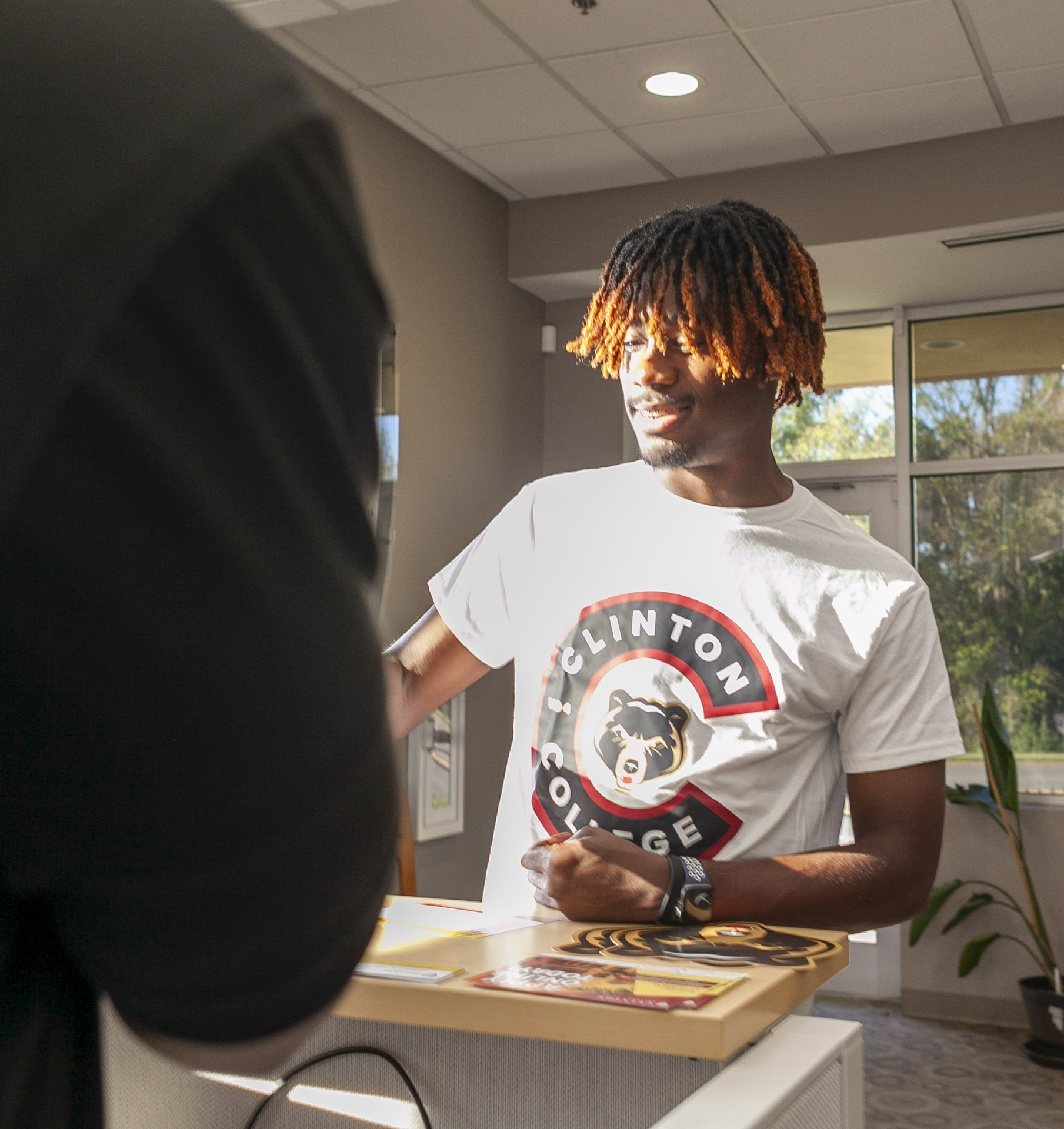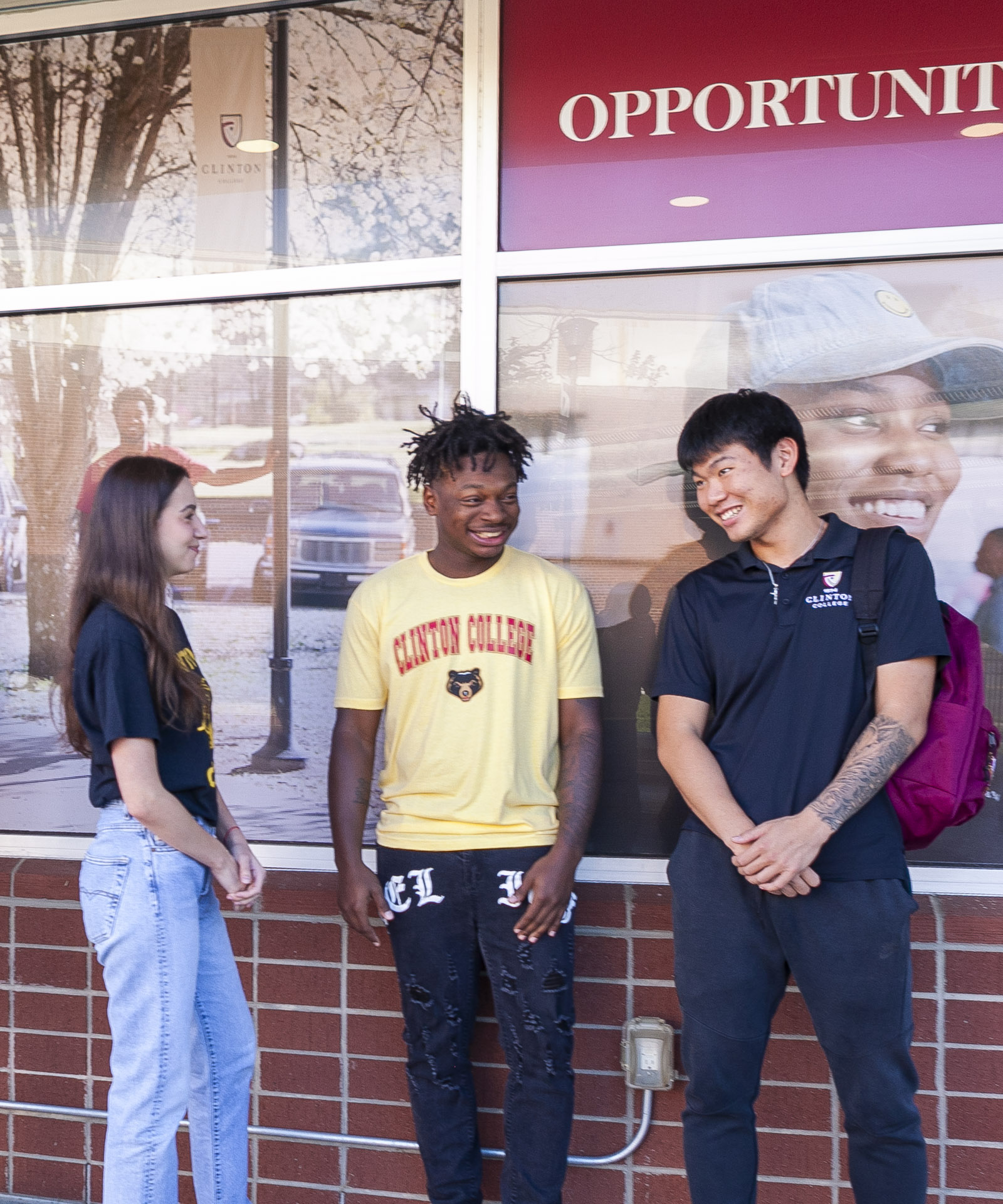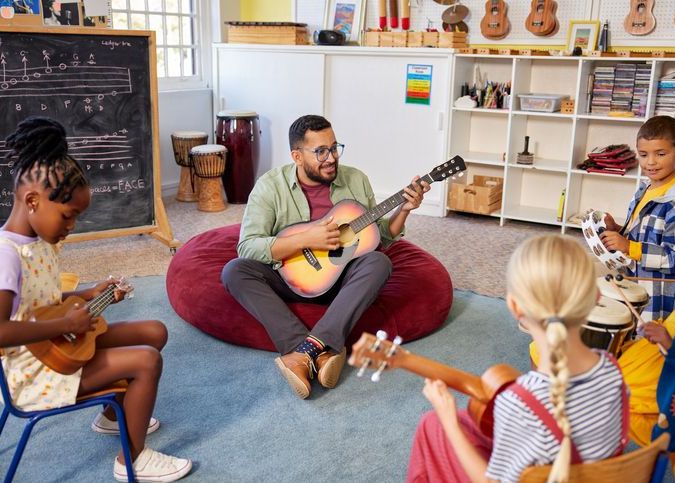
Program Mission
The mission of the Bachelor of Arts in Music (Concentration in Voice) is to offer all students who have demonstrated interest and ability in singing professionally, the opportunity to continue further study and to educate students in such a way that they understand and appreciate the vocal arts, not only as a rich historical and cultural heritage, but as an ongoing, contemporary endeavor that incorporates tradition and technological advancements through individual and group participation.
Student Learning Outcomes (SLOs)
The Bachelor of Arts program in Vocal Performance aligns with the Clinton College mission elements of promoting academic achievement through its coursework leading to student learning outcomes in conceptual knowledge and applied skills to be developed in all science courses and labs. The mission elements of promoting moral and spiritual development, fostering leadership qualities, and encouraging students to be good citizens are emphasized throughout the program.
Students majoring in music with a concentration in voice performance will achieve the following learning outcomes:
Content Knowledge: Students will demonstrate knowledge of major concepts, theoretical principles, and research/experimental findings in Voice. Students must also demonstrate achievement of professional, entry level competence in the area of specialization, including significant technical mastery and a coherent set of artistic/intellectual goals that are evident in their work.
Critical Thinking: Students will demonstrate the skills necessary to prepare numerous assignments in music theory employing a wide range of skills sufficient for clear and effective verbal and written communication. Practical: Demonstrate basic vocal skills, through performance of scales, technical exercises, and prepared pieces and demonstration of live musical performance through attendance at relevant musical events.
Problem Solving: Students will demonstrate the skills and disposition necessary to investigate a problem through the lenses of two scientific disciplines, using ethical reasoning, analytical reasoning, and quantitative skills. Students will engage in applied studies each semester that will provide appropriate skills, knowledge, and experience to prepare students for professional careers in the field.

Degree Requirements (120 hours)
This listing of requirements is for information purposes as of the dating of this catalog. Part One of this bachelor’s degree is identical to the Associate of Science in Business Administration. Part Two is restricted to students admitted to the bachelor’s degree and having a class standing of junior or senior.
Total 60 Hours
General Education Requirements (31 total hours)
Requirements for the Major – Part One (29 total hours)
MUS 100: Applied Voice I
MUS 101: Foundations of Music & Ear Training
MUS 103: History of Music
MUS 200: Applied Voice II
MUS 201: Applied Voice III
MUS 202: College Choir I
MUS 203: College Choir II
MUS 204: College Choir III
MUS 206: Music Theory & Ear Training II
MUS 207: Applied Voice III
MUS 208: Music Theory & Ear Training III
MUS 209: Applied Voice IV
MUS 210: Applied Piano
MUS 211: College Choir IV
Total 60 Hours
General Education Requirements (4 total hours)
Electives Music 300-400 Level (6 total hours)
Requirements for the Major (50 total hours)
MUS 300: Musicianship
MUS 303: Music Theory and Ear Training IV
MUS 304: Applied Voice V
MUS 305: Music Diction (English & Italian)
MUS 306: Applied Voice VI
MUS 307: College Choir VI
MUS 310: College Choir V
MUS 400: Survey of Solo Vocal Literature
MUS 401: Public Speaking and Storytelling
MUS 402: Form and Analysis of Choral/Vocal Masterworks
MUS 403: Choral Methods & Resources
MUS 404: College Choir VII
MUS 405: Applied Voice VII
MUS 407: Literature Opera and Musical Theatre
MUS 408: Applied Voice VIII
MUS 409: College Choir VIII
MUS 411: Senior Recital/Capstone
MUS 412: Performance Seminar I
MUS 413: Performance Seminar II
SPA 101: Spanish I
SPA 102: Spanish II

Career Options
These are just a few of the careers you could start with a degree in Music (Voice)!

Performance
Pursue a career as a professional singer in opera, musical theater, ministry, or as a solo artist in various musical genres.

Music Education
Teach voice in schools, colleges, or private studios, helping students develop vocal techniques and musical skills.

Music Therapy
Help individuals improve emotional, cognitive, and physical well-being through therapeutic singing and music-based interventions.
